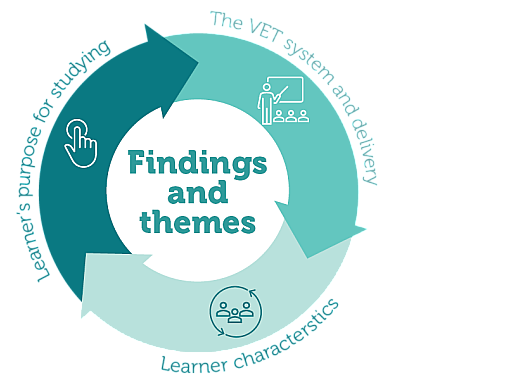On Wednesday 25 October 2023, the Australian and South Australian Government published the National Vocational Education and Training Completions report (the report).
Delivered by the National VET Completions taskforce, the report unpacks the factors affecting completion rates throughout the entire learning journey.
Coordinated effort by the skills and training sector is needed to improve VET completion rates.
The report identifies three key themes for the sector to focus on: understanding and responding to the purpose for study, improving the VET system and delivery, and supporting learners most at-risk of non-completion.
The report was informed by research conducted by the South Australian Government who engaged with key system stakeholders across Australia and explored national and international good practice models to increase completion rates.

Seventeen recommendations to improve VET completion rates
1. Career and course information
2. Enrolment practice
3. Employer capability
4. Pathways advice
5. Evidence-based course design
6. School and VET alignment
7. Reflect learner skills and experience
8. Learning practice
9. Quality and responsive delivery
10. System settings
11. Measuring outcomes
12. Identify at-risk learners
13. Wrap-around support
14. Employment relationship
15. Support for at-risk students
16. Transition supports
17. VET workforce
About the National VET Completions Taskforce
The National VET Completions Taskforce included stakeholders from unions, industry, providers and governments.
The taskforce was formed to consider the project findings and endorse recommendations to Skills and Workforce Ministers on the potential to improve VET completions in the context of a new National Skills Agreement.
